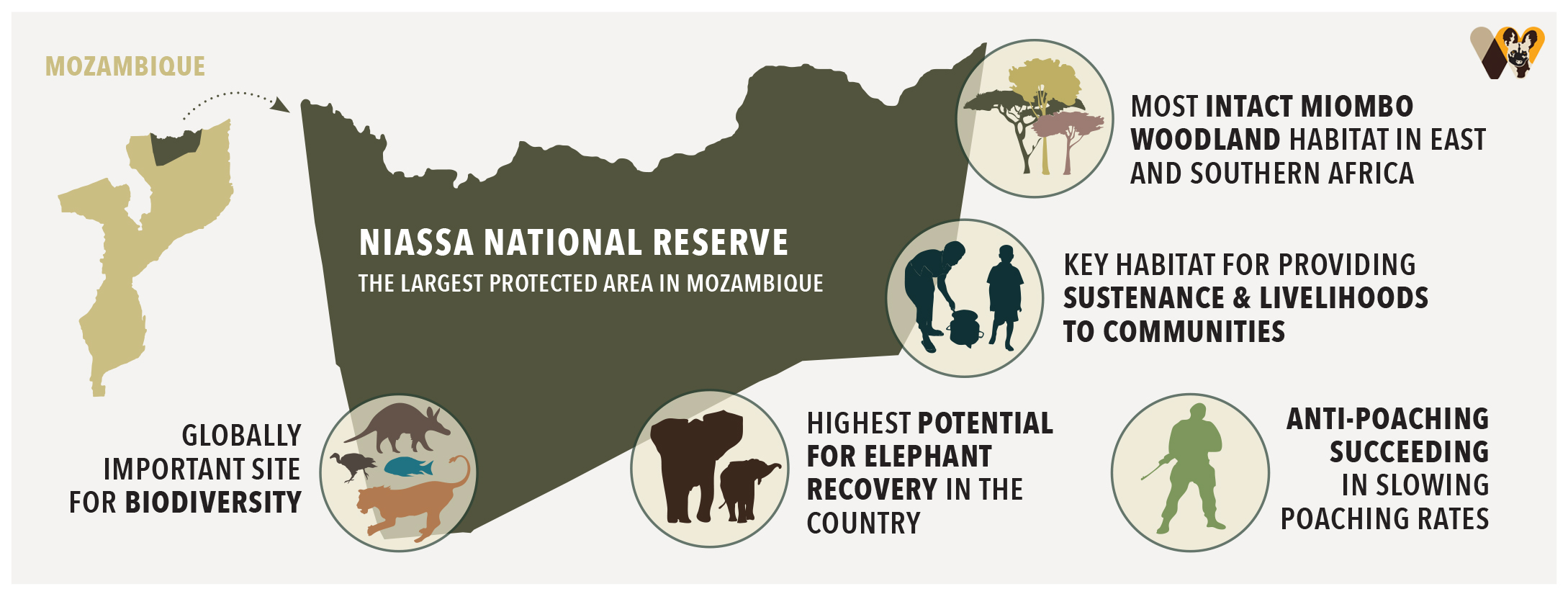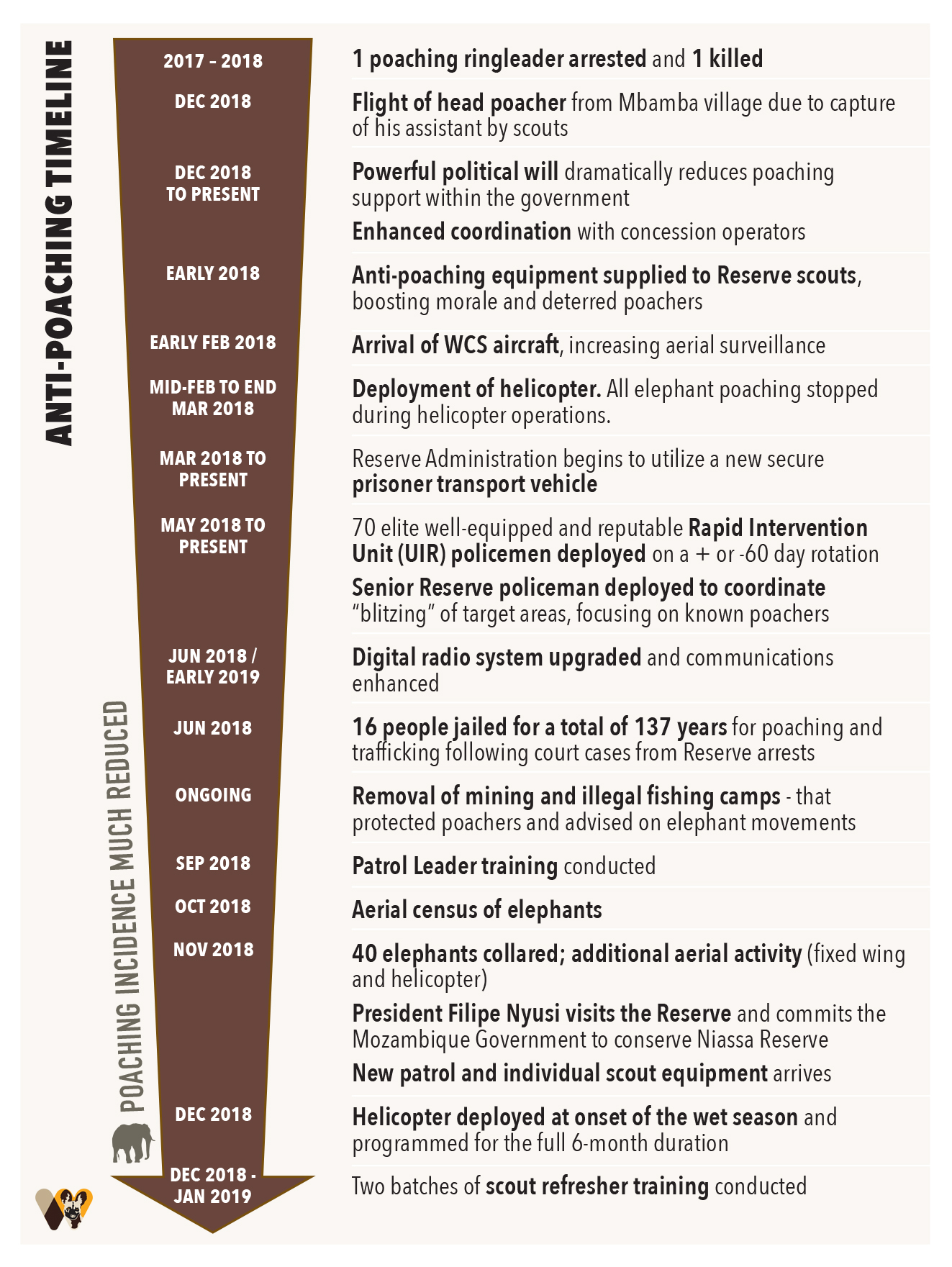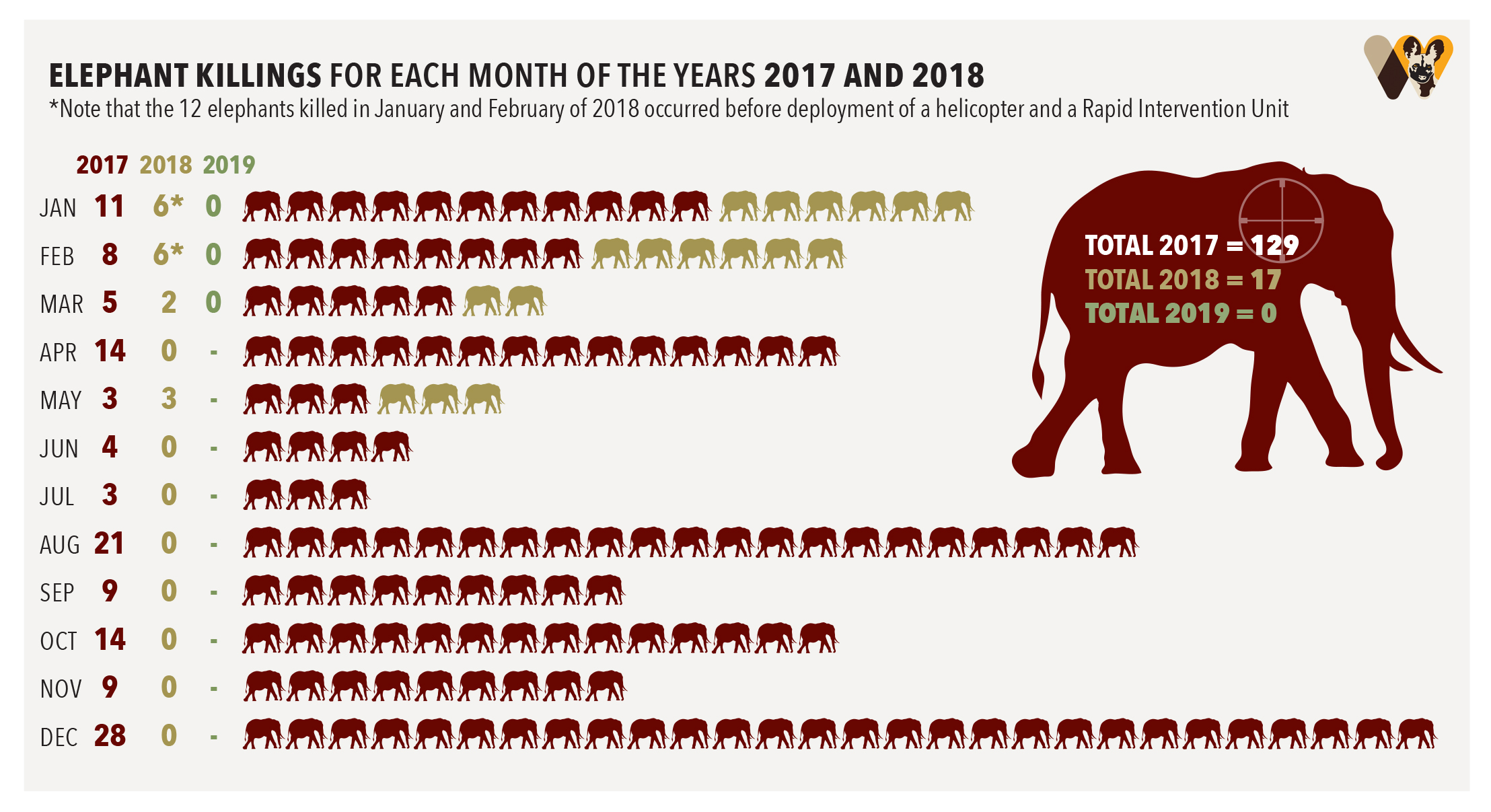The Niassa National Reserve in northern Mozambique is one of Africa’s largest (442,300 km2) wildest, and most spectacular landscapes, comprising 28% of Mozambique’s protected land. A globally important site for African biodiversity, Niassa contains the largest extant blocks of miombo woodland - dotted by enormous inselbergs soaring hundreds of metres high - within a single protected area. The Reserve harbors some of Mozambique’s most significant populations of wildlife, including elephant, lion, leopard, wild dog, sable, kudu, wildebeest and zebra.

Niassa was also the site of nearly catastrophic elephant poaching, primarily from 2009 to 2014, which cut the population to 3,675 (±11,521)) as recorded in a 2016 aerial survey. Nonetheless, given the enormous extent of wild habitat available in Niassa - exceeding the size of Switzerland - it remains one of the few areas left in Africa capable of supporting a robust elephant population, with some research estimating the landscape could support as many as 20,000 individuals. From 2015 to 2017, anti-poaching strategies reduced killings to an average of around 100 individuals a year - still far too high, but nevertheless marking a positive turn of events. Additional actions starting in 2018 have succeeded in slowing poaching rates even further, providing hope that Niassa elephants stand a genuine, if tentative, chance for recovery.
To Stop Poaching, Collaboration is Essential
To fight elephant poaching head on, a group of Niassa National Reserve partners - comprised of the Government of Mozambique, the Wildlife Conservation Society, and the Niassa Conservation Alliance - began to implement a coordinated anti-poaching strategy in early 2018. This strategy included chartering a helicopter during the wet seasons of early 2018 and late 2019 to conduct daily patrols of areas with known elephant concentrations, deploy scouts and supplies to remote poaching locations, and support maintenance of a digital radio system.

The partnership also cleared - and kept clear - illegal mining and fishing camps, began pursuing numerous poaching cases in Niassa and Cabo Delgado, and improved and expanded the existing Niassa radio system for better coordination among all partners on anti-poaching operations.
Altogether, these actions, resulted in an 87% reduction in the number of illegally killed elephants in 2018 compared to 2017, and a 100% reduction in 2019 compared to 2017 and 2018 over the January to March time period.
